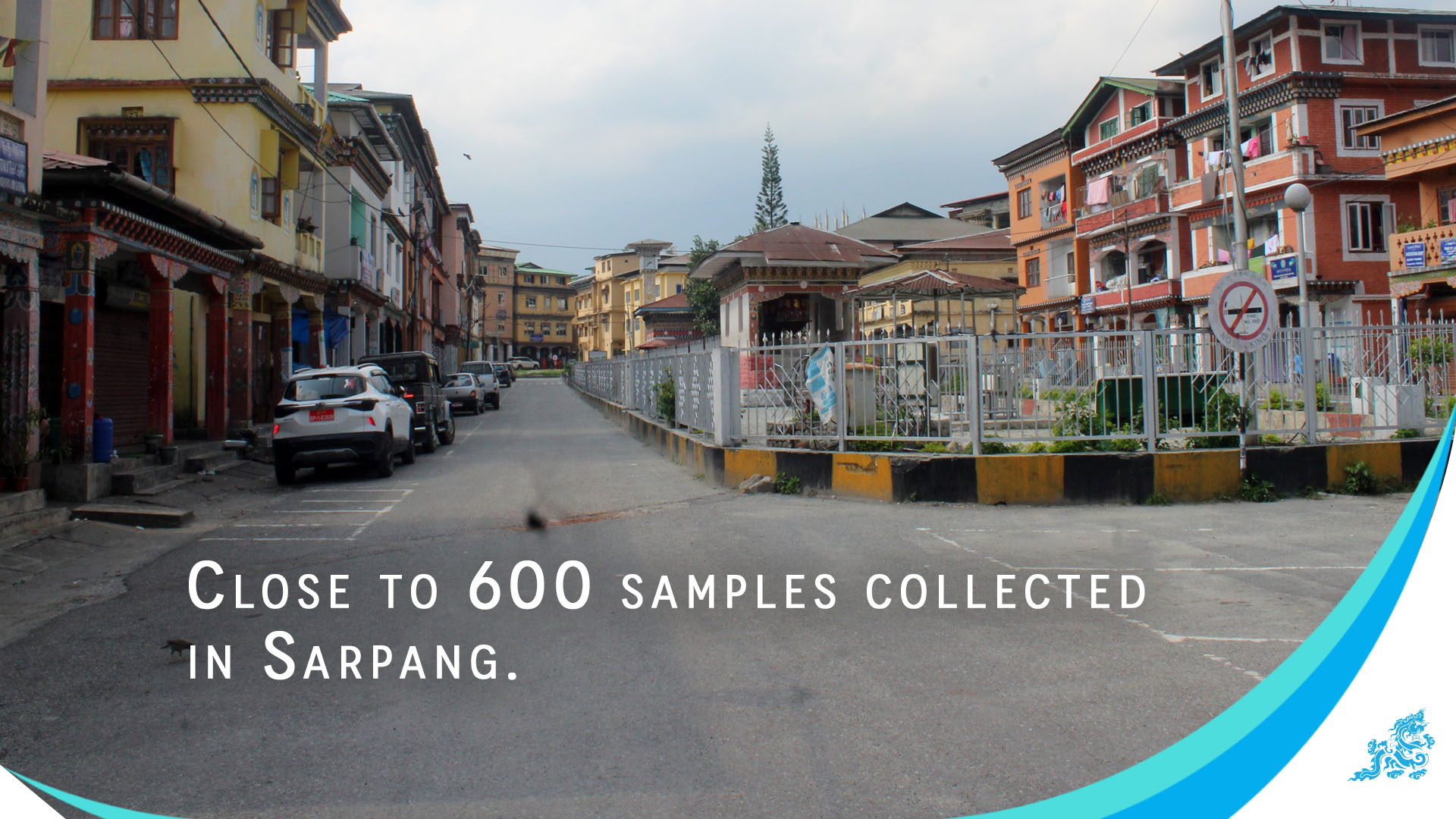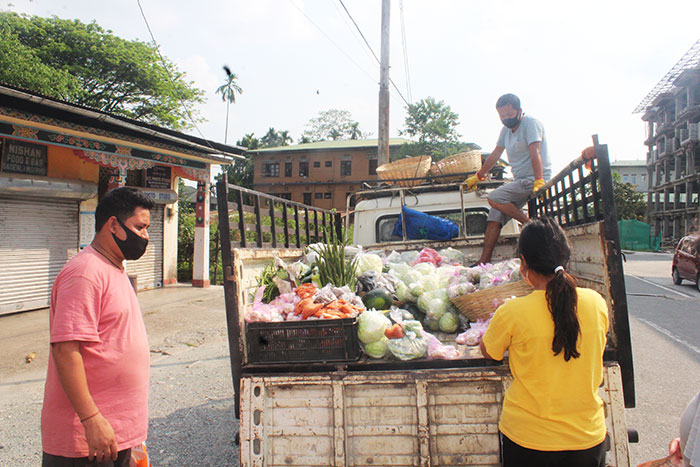
Essential items and services are being delivered to homes after Sarpang Dzongkhag implemented the lockdown that the national Covid-19 taskforce declared on April 16
… 350 samples tested negative
Nima | Gelephu
The contact tracing and surveillance, which includes testing of high-risk population and incoming travellers, in Sarpang dzongkhag after the recent lockdown is expected to complete today.
The lockdown relaxation would begin in a day or two if there are no Covid-19 positive cases and after the analysis from the national taskforce, the officials from the contact tracing and surveillance team said.
The officials from Gelephu Central Regional Referral Hospital (CRRH) started the assessment following positive cases from the community in Phuentsholing that triggered the lockdown in dzongkhags, thromdes, and satellite towns along the southern border.
The team tested over 350 samples from high-risk populations and those who came to the dzongkhag from Phuentsholing between April 7 and 16. All tested negative.

Residents buy vegetables from a vendor identified to deliver during the lockdown
A total of 157 people travelled to Sarpang from Phuentsholing and 61 left for Thimphu, Wangdue, Samdrupjongkhar, and Chukha. Close to 100 travellers, mostly businessmen and drivers, tested on Saturday came negative.
The team collected over 250 samples from vegetable vendors, taxi drivers, incoming travellers, and high-risk villages. The results are expected tonight.
The medical superintendent with CRRH, Dr Dorji Tshering said, “A report of the surveillance would be submitted to the national taskforce. If all comes negative, probably the relaxation might start after the assessment.”
The ongoing assessment and surveillance have adequate representation of the high-risk population.
Delivery of essential items started yesterday and the identified shops in the respective zones are allowed to open from today in Gelephu.
The dzongkhag Covid-19 task announced lockdown for Gelephu thromde, Shaychamthang, Sarpang tar, and five gewogs: Gakiling, Shompangkha, Dekiling, Samtenling, and Gelephu gewog on April 17.
The task force has identified over 40 shops, vendors, and other essential service providers in the gewogs and towns that are currently under lockdown.
Schools, offices, and business establishments in thromde, satellite towns, and gewogs close to the border are closed safe for the identified shops.
Exports of goods and import of essential goods are facilitated, and transport of essential goods to other dzongkhags is done through transhipment and driver switching mode.
The registration and quarantine for routine travellers are suspended following the lockdown.
The movement for the essential service providers are allowed and new permits issued to reach the essential items and required services to those who face difficulty availing the services.
Gakiling Gup, Nim Dorji said that there was no report of people who visited Phuentsholing, as it required people to follow safety protocols. “Many businessmen and drivers had been to Phuentsholing,” he said.
He added that the lockdown was important as the gewogs shared a long porous border. “Moreover, there were people with travel history to Phuentsholing,” said Nim Dorji.
He said that most of the people were supportive and used to the lockdown now.

